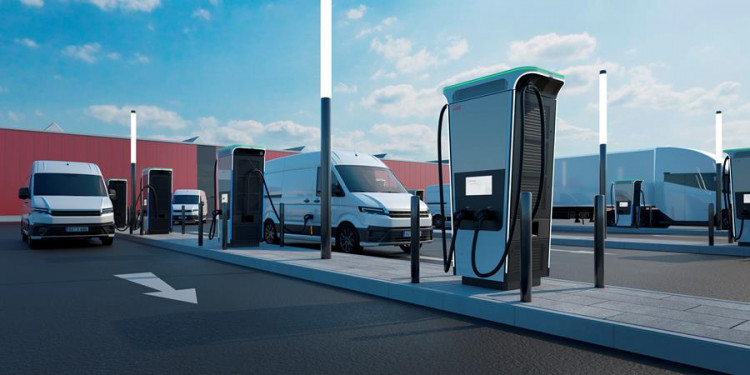The Biden administration unveiled a detailed plan on how it would be spending the $5 billion allocated to support electric vehicle adoption in the U.S. by building an extensive network of charging stations throughout the country. The plan is part of the recently approved $7.5 billion bipartisan infrastructure package.
On Thursday, senior White House officials released new guidance for all states on the planned network of electric vehicle charging stations, which will be built throughout the country's national highway system.
The plan, called the National Electric Vehicle Infrastructure Formula Program, is part of the administration's wider goal of reducing the nation's carbon footprint by increasing EV usage. In the released guidance, states were told to submit their EV infrastructure deployment plans to the Joint Office of Energy and Transportation before the end of July.
The government is aiming to have half of all vehicle sales in the country be EVs or plug-in hybrids by the end of the current decade. The U.S. is currently the world's third-largest market for electric vehicles, right behind China and Europe.
Despite an increase in electric vehicle sales in recent years, the transportation sector remains one of the greatest contributors to greenhouse gas emissions in the U.S., accounting for nearly one-third of total emissions each year.
Energy Secretary Jennifer Granholm said Thursday that the goal of the EV charging network is to get rid of range anxiety for new car buyers. She added that with the charging network expansion, new EV owners would be able to charge their cars wherever they live, work, or travel to within the country.
U.S. President Joe Biden said that using electric vehicles will save Americans up to $1,000 each year. He added the plan should help ensure that the U.S. will lead the world and overtake China in the adoption of EVs.
The government is partnering with Australian EV charger manufacturer, Tritium. The company is slated to establish a local manufacturing facility in Tennessee capable of producing up to 30,000 EV chargers per year. The contract is estimated to generate more than 500 new jobs within the state.
White House officials said the remaining $2.5 billion from the infrastructure package would be used to fund community EV charging stations and as grants for related projects.
Previously, the administration suggested an EV incentive package that would provide additional funds to consumers who purchased electric vehicles made by unionized employees. The administration has also pledged to convert 600,000 federal cars and trucks to electric power by 2035.






